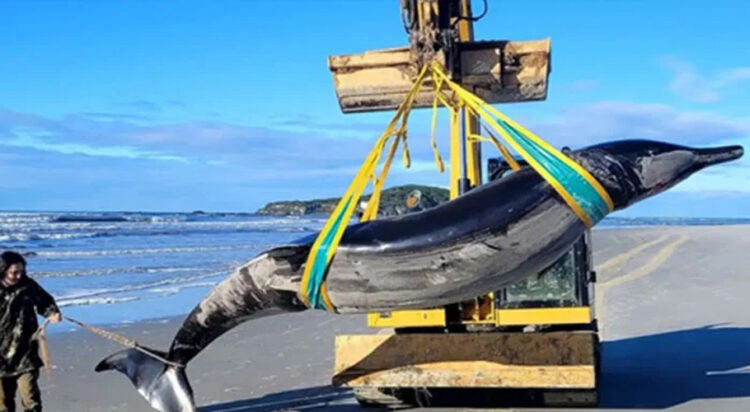A whale carcass that washed ashore on a beach in New Zealand is believed to belong to the rare spade-toothed whale. Named for its teeth, which resemble traditional spade tools used for stripping whale fat, this five-meter (16.4-foot) beaked whale was discovered near a river mouth in southern Otago province on July 4, according to government researchers.
Marine mammal experts from New Zealand’s Department of Conservation and the national museum, Te Papa, identified it as a male spade-toothed whale. A DNA analysis has been initiated to confirm its classification.
“Spade-toothed whales are one of the least understood large mammal species today,” said Gabe Davies, coastal Otago operations manager for the conservation department. “Since the 1800s, only six specimens have been documented worldwide, with all but one found in New Zealand,” he noted in a statement on Monday. “This discovery is significant for both scientific and conservation efforts.”
The carcass is fresh enough to allow for the first dissection of a spade-toothed whale, according to the conservation department. The species is so rare that little is known about them.
Due to the whale’s rarity, discussions about the next steps will take longer, as this is considered an issue of international importance. The species was first described in 1874 from just a lower jaw and two teeth found in the Chatham Islands off New Zealand’s east coast.


































